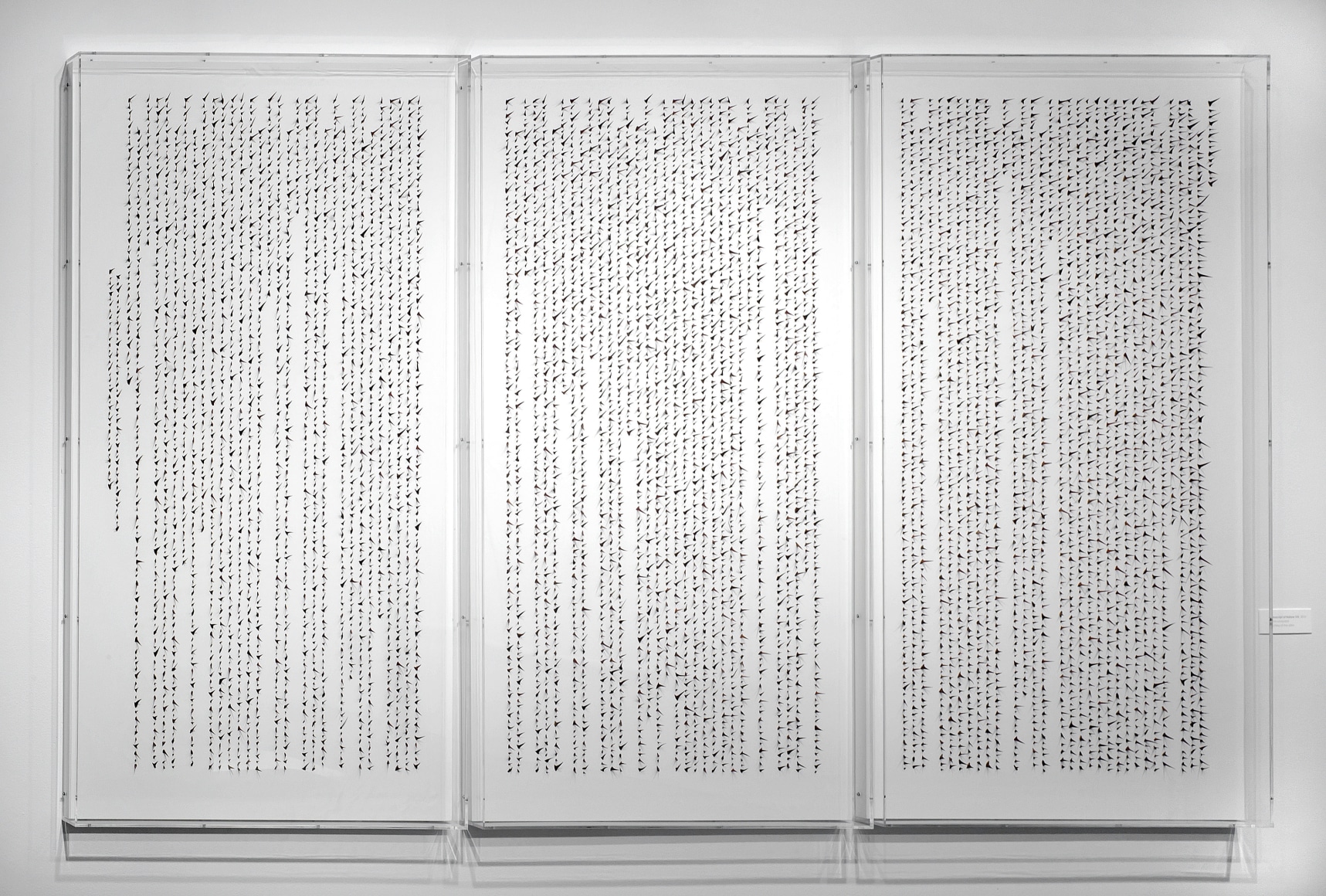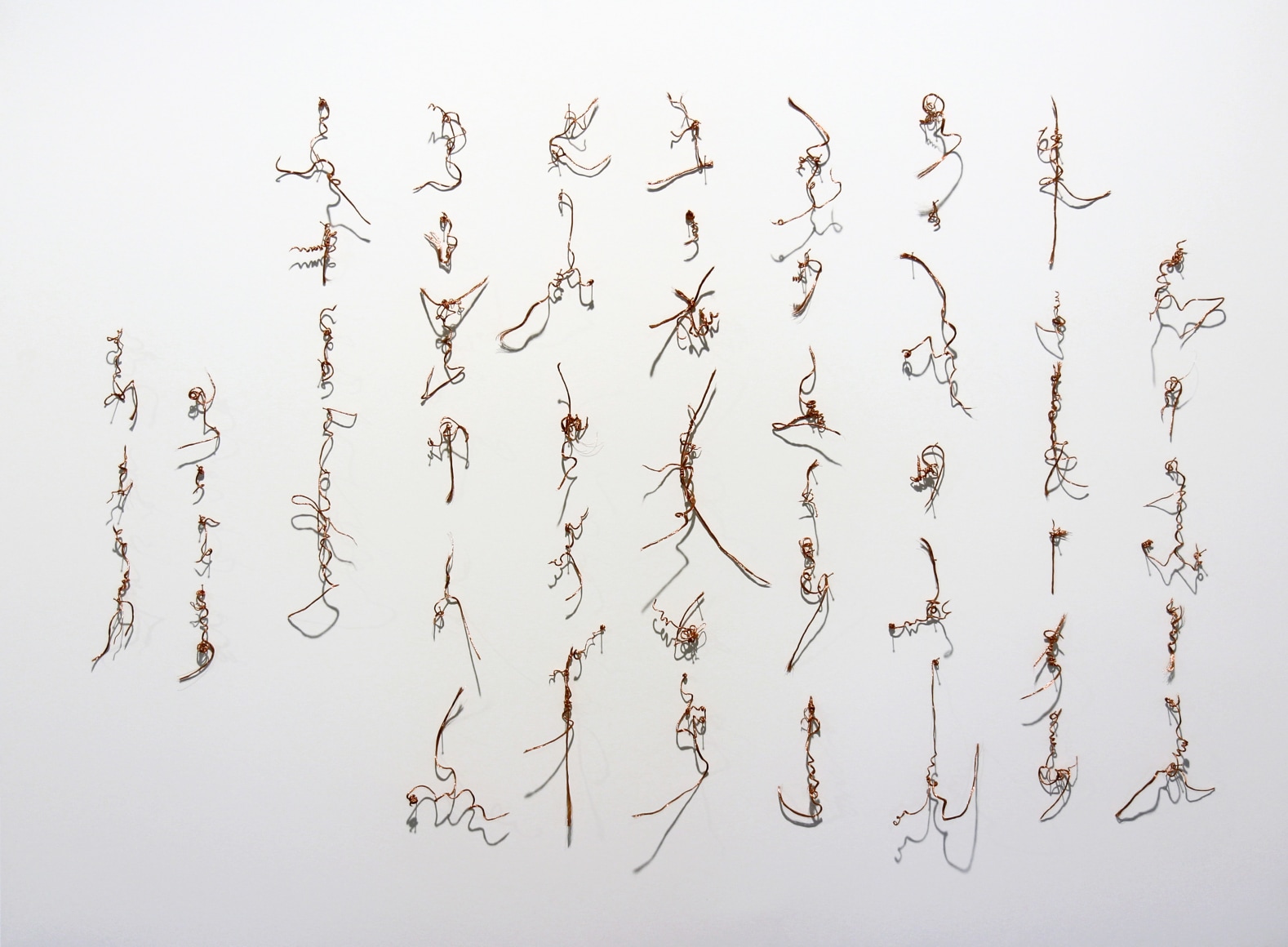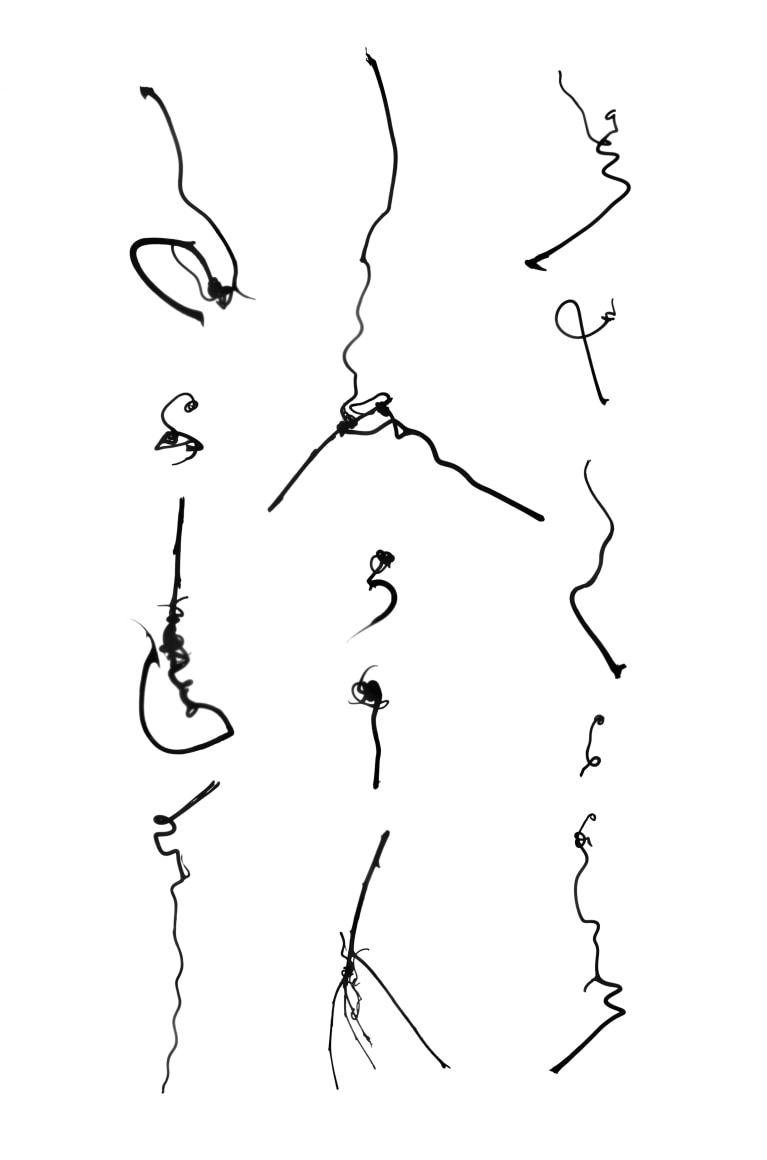Chambers Fine Art is pleased to the opening on April 25, 2013 of Cui Fei: Tracing the Origin, her first solo exhibition at the gallery. A graduate of the Zhejiang Academy of Fine Art in Hangzhou, China, she moved to the United States in 1996 and has been resident here ever since. Although she lives and works in New York City her work is inspired by nature, her favored materials being natural materials such as vines, twigs and tendrils that she gathers herself. She is also deeply responsive to aspects of traditional Chinese culture and philosophy which permeate her work, recognizing the essential role that calligraphy played in the development of Chinese civilization and using it as a constant reference whatever form her work takes.
For more than a decade she has been working on three ongoing series, Calendar, Manuscript of Nature, and Tracing the Origin. Based on events in her personal life, Calendar is the most circumscribed in form and uses natural materials such as seeds, beans, thorns and weeds that lend themselves to orderly arrangements. Although they are closely related Manuscript of Natureand Tracing the Origin refer to the natural world in different ways, the former emphasizing the relationship between natural materials such as twigs, tendrils and thorns and calligraphy and the latter using manmade materials to reveal the way in which natural sources of inspiration are gradually transformed by human intervention.
The current exhibition offers a selection of recent works from Manuscript of Nature and Tracing the Origin, the dialog between the different approaches adopted in the fabrication of the works being an essential part of Cui Fei’s ongoing practice. In five new works from Manuscript of Nature VIII, 2013, the tendrils she uses resemble Chinese running script, a dynamic form of writing totally different in character from the regimented rows of thorns in the majestic, three-panel Manuscript of Nature VIII, 2010.
In the new works from Tracing the Origin series she adopts a diametrically opposite approach, creating abstract forms from copper wire and speaker wire that resemble natural forms. Also belonging to this series is a group of photograms executed in 2012, a technique used in some of the earliest photographic images. Placed directly on photo-sensitive paper, the natural forms she selects bear an even closer resemblance to calligraphy, disembodied versions of actual materials she uses elsewhere in the exhibition.
Although not site-specific, the current selection of recent additions to the series creates an environment which is enriched by the formal and material relationships between the individual works. Most striking is the balance she achieves between the natural materials she uses and the orderly way in which they are presented. Her patient methodical approach may be seen as a form of meditative practice that results in installations and independent works that are memorable for their quiet authority.
崔斐毕业于杭州的浙江美院(现中国美院),1996年移居美国。虽然居住和工作于纽约这座国际大都市,崔斐的作品却深受大自然的启发。她热衷于采用自然界中的材料,如她自己所收集的藤蔓、树枝和卷须。她也深受中国传统文化和哲学的影响,并将其融入自己的艺术创作之中。她意识到书法在中华文明的发展中起到的重要作用,并以不同形式将书法穿插在作品中。
崔斐用了十多年的时间来创作三个至今尚未完成的系列——《日历》、《自然的手稿》和《溯源》。《日历》系列的创作灵感来源于她的个人生活,在表达形式上最为拘谨,运用了种子、豆、荆棘和杂草,并将所有的元素有条不紊地组合在一起。《自然的手稿》和《溯源》这两个系列有着密切的联系,却以截然不同的方式来表现自然。前者强调天然材料,如树枝、藤蔓和荆棘与书法之间的关系;后者则采用人造材料,揭示了来自大自然的灵感是如何逐渐被人为改变的。
本次展览展出了《自然的手稿》和《溯源》系列中的近期作品。尽管并非场域特定艺术,但各作品之间在形式和材料上的相互关系使得此次展出的作品共同营造出一种氛围。最特别的是,她实现了对天然材料的运用以及将它们有序呈现在作品中的平衡。她细致入微的创作方法可被视为一种冥想,使其作品及装置艺术显得静默威严又令人难忘。



